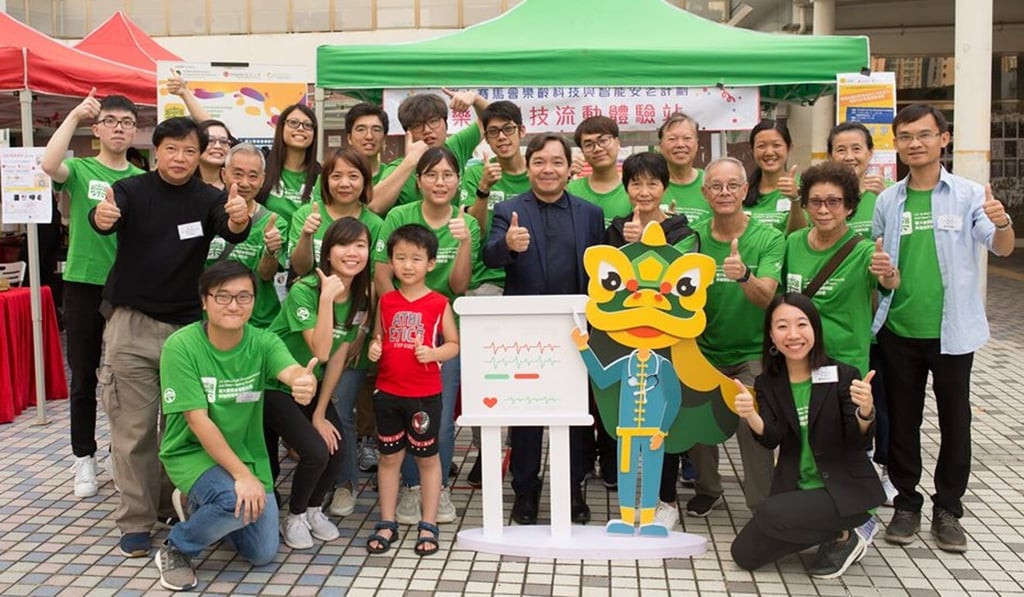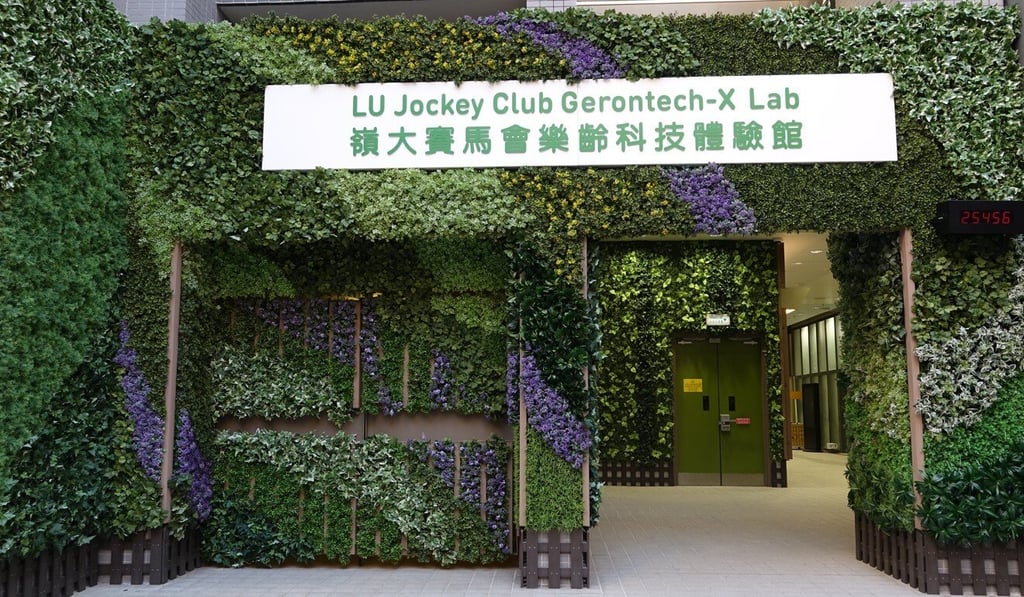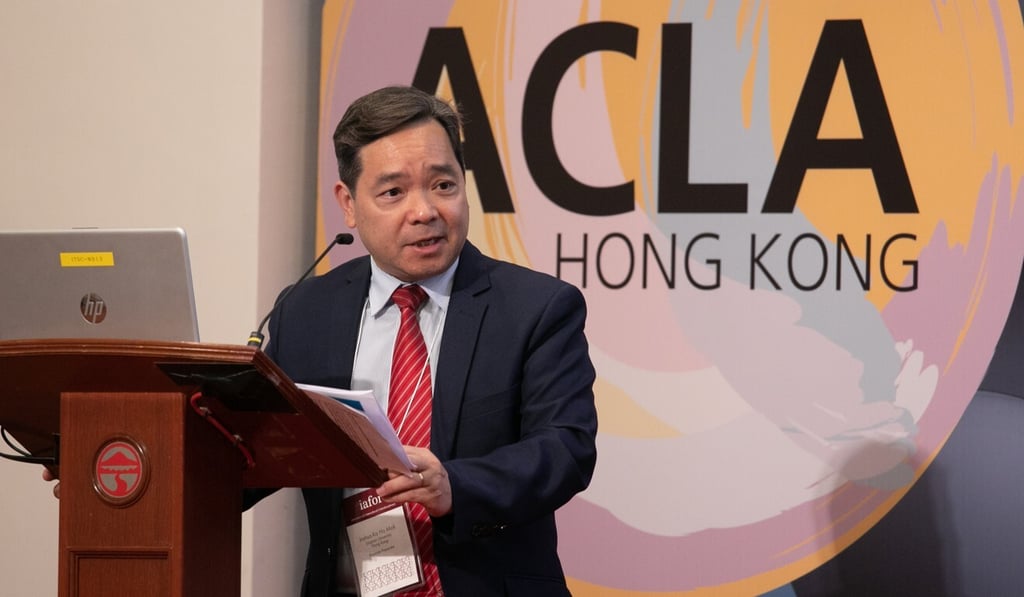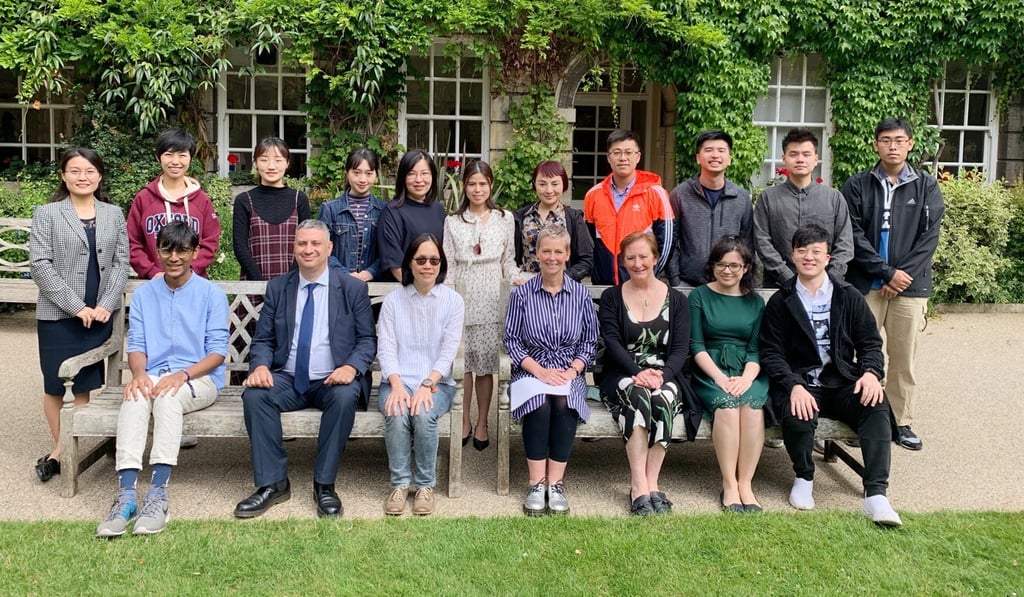Hong Kong’s public liberal arts university uses tech innovation to improve lives of elderly
- Lingnan University’s Institute of Policy Studies leads initiative to help city’s ageing population, which could rise to estimated 2.52 million by 2039
- Collaborations with local organisations and institutions including Oxford, Bath and Durham universities also enhance research for students and society
[Sponsored article]
One initiative now exploring ways to support the city’s ageing population is the LU Jockey Club Gerontechnology and Smart Ageing Project, which is being led by the Institute of Policy Studies (IPS) at Lingnan University, Hong Kong’s only public liberal arts university.
The three-year research project, which runs until 2022, aims to promote gerontechnology, a multidisciplinary field that combines gerontology – the scientific study of old age, ageing and problems facing the elderly – and technology to support the needs of Hong Kong’s ageing population, and improve their quality of life and ability to care for themselves.

It not only “promotes gerontechnology and supports smart ageing socialpreneurship development”, but also provides an educational platform for training courses and workshops on gerontechnology in areas such as health care, dining, living and transport, Professor Joshua Mok Ka-ho, vice-president at Lingnan University and head of the project, says.
Mok, who is also director of IPS, says the project has received funding of about HK$20 million (US$2.6 million) from The Hong Kong Jockey Club Charities Trust after being selected for the HKSAR Chief Executive’s Community Project List.
“If we can adopt gerontechnology to help the elderly adapt to new changes in society, they can live comfortably at home, in residential care homes or in the community,” he says during the latest of South China Morning Post’s recurring EdTalk video series of interviews, which sees teaching experts discuss pertinent issues surrounding education.
As part of the project, Lingnan University has built a 2,000-square-foot (185-square-metre) Gerontech-X Lab at its campus in Tuen Mun.
This showcases and promotes the latest gerontechnology products that can be used by the elderly and their carers to enhance their lives. The public can test the products at the lab, which is open only by appointment.

Mok says the lab initiative is helping to bridge the gap between the city’s elderly and younger generations as they can interact with each other and learn to use the technology together. Gerontechnology manufacturers are also able to get direct feedback from the elderly about their specific needs.
“We hope that youth and the elderly get to know more about gerontechnology so that senior citizens can age in the comfort of their homes while supported and lead a fit and happy life in Hong Kong,” he says.
Collaborations for the better good
The project highlights how collaboration with outside organisations can improve research for the benefit of society.
“Our motto is education for service,” Mok says. “We care for society, so we do research. It’s not only for international [academic] publications.
“Our research mission is to generate findings that have [a] positive impact on social change and can also inform policy formulation in Hong Kong and beyond.”

IPS was set up in September to engage in comparative and international research in policy studies.
It aims to drive the study of Asia’s economic and social development, policy and governance through international partnerships with other universities and their research centres.
One example of this is Lingnan’s partnership with the Centre for Global Higher Education, led by Britain’s Oxford University and University College London, which focuses on comparative research around higher education.
Mok says it enables Lingnan to learn about global higher education trends and its impact on socioeconomic development of the world.
Lingnan is also a core partner of the Centre for Research in Education in China and East Asia, a collaboration with Britain’s Bath University and Durham University. The centre was launched in March last year to provide a platform to exchange ideas about education and the social sciences between Asia and Europe.

“Through such collaborations, students have easy access to professors from around the world as they can interact online and continue their work unhindered by Covid-19,” Mok says.
“Faculty members can exchange ideas with international peers on complex issues too.
“We are living in a world of complexity, and it is vital to draw international insights and compare, to better inform policy formulation and implementation.”
Lingnan students undertaking postgraduate programmes can also go beyond simply classroom learning and research by attending global conferences and the three-week International Postgraduate Summer School, in collaboration with Oxford University, to learn about research methodology.
“Collaboration and cooperation matters for a global city like Hong Kong,” Mok says. “As an institute of higher learning, connecting in and beyond the region will certainly help our students learn beyond borders.”